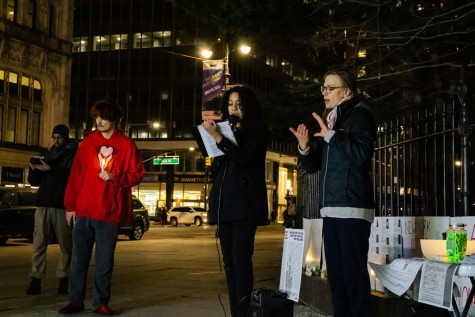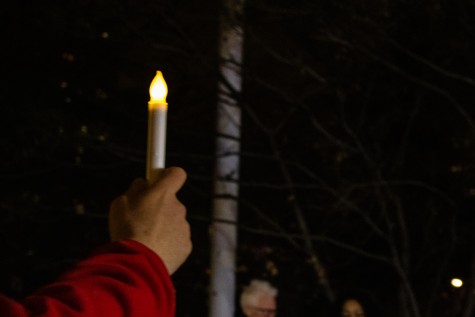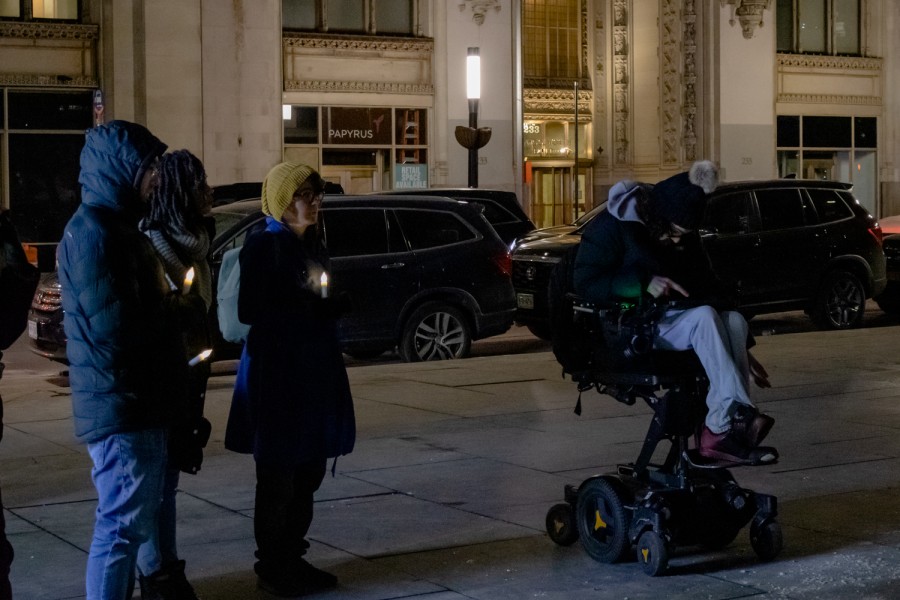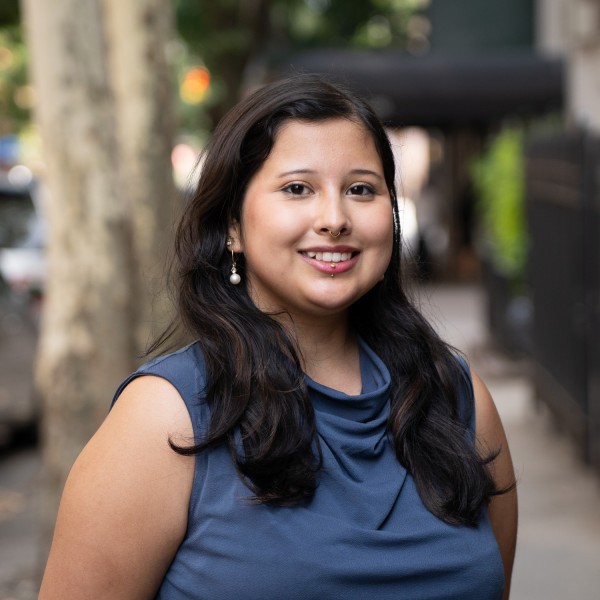Vigil at City Hall mourns disabled people killed by caretakers
The event sought to mark the Disability Day of Mourning and commemorate the lives of 198 disabled people killed by their caretakers.
Vigil attendees listen to a speaker at a Disability Day of Mourning vigil on March 1. (Tori Morales for WSN)
March 5, 2023
A vigil held in honor of disabled people killed by their caretakers worldwide drew more than a dozen mourners to City Hall Park on March 1, the internationally recognized Disability Day of Mourning. Attendees hung their heads and clutched electronic candles as they heard about the victims, whose ages ranged from 20 days to 93 years.
The event, organized by the Autistic Self-Advocacy Network, a nationally recognized nonprofit, and led by autistic disability advocate Nicole Russell, sought to spread awareness about the murders, as well as societal attitudes at large which devalue the lives of people with disabilities.
“People look down on people who are disabled and they can’t imagine them living a happy life,” Russell said at the event. “They see people with intellectual and developmental disabilities and view them as less than, see them as suffering. They see ‘disability’ as a dirty word.”

Zoe Gross, who serves as the advocacy director for the Autistic Self-Advocacy Network, created the International Disability Day of Mourning in 2012 to honor the lives of disabled people killed by caretakers. According to the network, over 550 disabled people have been killed by caretakers over the past five years, a number that it partially attributes to societal attitudes, as well as media coverage of disability and filicide cases.
Disability rights advocate Brian Myers joined Russell in reading out the names, ages and causes of death for each of the 198 victims added to the list it maintains since March 1 last year. The reading took 13 minutes. An American Sign Language interpreter was also present.
“The names on that list were robbed of us, and we were robbed of them as well,” Russell said. “Taken by those they should have had cause to trust the most, their lives and their names were reduced. To the media and those many voices which sympathize with their killers, they were robbed of their very personhood.”
Coverage of when disabled people are murdered often attempts to justify or lessen the severity of the crimes, according to rights advocates and substantiated by academic research. In cases involving parents killing their disabled children, media focus typically centers on the emotional state and justification of the parents, rather than the disabled person’s life.

A pamphlet distributed at the event featured a foreword written by Gross highlighting a 2012 case in which a 22-year-old autistic man was fatally shot by his mother, who then died by suicide. Publications reporting on the event called the mother “devoted and loving,” and published interviews that normalized the actions of the mother. One article, published in a local newspaper, featured an interview with another parent of a disabled child, who said, “every mother I know who has a child with special needs has a moment just like that.”
In an interview, Russell said that although reporting on disability issues has improved in the past decade, she still sees the same patterns. She said she hopes, however, that rising awareness and acceptance of disabilities, both physical and neurological, as well as solidarity between disabled groups, will make mainstream views more informed of disability issues.
“It’s important to connect with other disabled people outside of your disability, because that will just show the rest of society that this is what we believe,” Russell told WSN. “We’re standing together on this issue.”
Contact Tori Morales at [email protected].
























































































































































